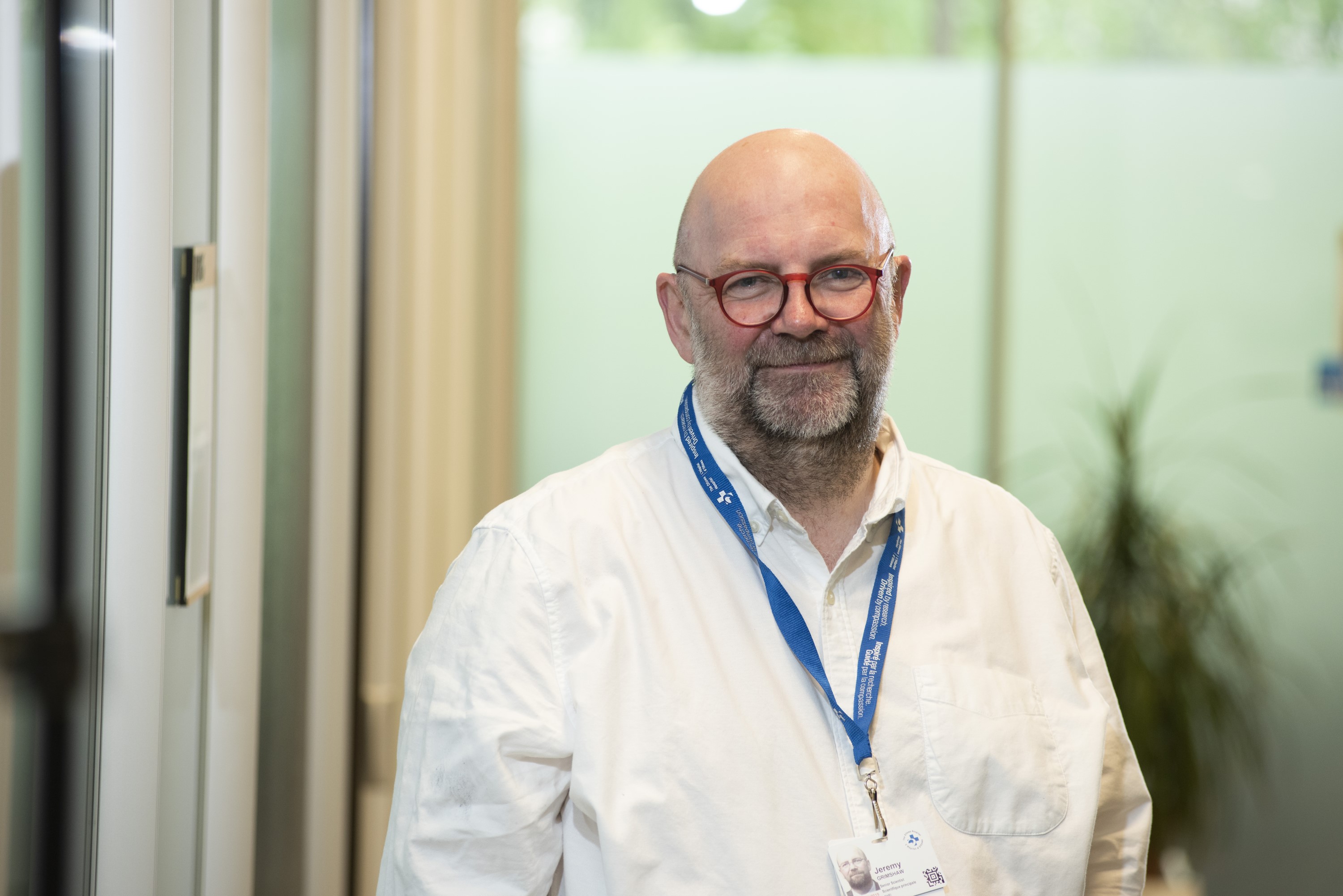Scientists call for "living evidence reviews" to combat COVID confusion
 Dr. Jeremy Grimshaw and colleagues are urging countries to adopt a new scientific approach that summarizes scientific research in near real time in order to combat COVID-19 and other global emergencies.
Dr. Jeremy Grimshaw and colleagues are urging countries to adopt a new scientific approach that summarizes scientific research in near real time in order to combat COVID-19 and other global emergencies.
Dr. Jeremy Grimshaw and colleagues published a commentary in Nature calling for "living evidence reviews" to combat COVID-19 and other global crises. They argue that traditional methods of summarizing evidence (systematic reviews) aren't fast enough to keep up with the pace of change we're seeing in COVID, and in fact, they can be repetitive and wasteful.
For example, 30 separate systematic reviews were published in just one year on remdesivir as a treatment for COVID-19, and many of these were out of date before they were published. Omicron is posing an even greater challenge.
The authors are urging countries to fund and adopt living evidence reviews as a new scientific approach for summarizing research in near real-time. They propose things like artificial intelligence to make the process faster, and they suggest that it could also be applied to other global crises, like antibiotic resistance and climate change.
Dr. Grimshaw has played a lead role in advancing the science and implementation of living reviews as co-lead of the global COVID-19 Evidence Network to support Decision-making (COVID-END).
See media release for details.
The authors
- Julian Elliott directs the Australian Living Evidence Consortium, based at Cochrane Australia, Monash University, Melbourne, Australia and is chief executive of Covidence.org.
- Rebecca Lawrence is managing director, F1000 Research, London, UK, is a Board Member of Open Research Central and was a member of the Open Science Policy Platform of the European Commission.
- Jan C. Minx heads the Working Group on Applied Sustainability Science at the Mercator Research Institute on Global Commons and Climate Change; is professor for climate change and public policy at the Priestley International Centre for Climate at the University of Leeds, UK; and co-chairs the Campbell Coordinating Group on Climate Solutions.
- Olufemi T. Oladapo is unit head, Maternal and Perinatal Health, UNDP-UNFPA-UNICEF-WHO-World Bank Special Programme of Research, Development and Research Training in Human Reproduction, Department of Sexual and Reproductive Health and Research, World Health Organization, Geneva, Switzerland.
- Philippe Ravaud is director of the Centre for Epidemiological and Statistical Research Sorbonne Paris Cité (CRESS-UMR1153), Inserm/Université de Paris, and director of the Centre for Clinical Epidemiology, Hôpital Hôtel-Dieu, Paris, France.
- Britta Tendal is director of the Department of Evidence-Based Medicine, Danish Health Authority, Copenhagen, Denmark.
- James Thomas is professor of social research and policy, and deputy director, Evidence for Policy and Practice Information and Co-ordinating Centre (EPPI-Centre), UCL Social Research Institute, Institute of Education, University College London, UK.
- Tari Turner is Associate Professor, Cochrane Australia, School of Public Health and Preventive Medicine, Monash University; Director, National COVID-19 Clinical Evidence Taskforce.
- Per Olav Vandvik is professor at the Department of Health Management and Health Economics, University of Oslo, Norway; a researcher at the Norwegian Knowledge Centre; and chief executive of the MAGIC Foundation.
- Jeremy M. Grimshaw is senior scientist, Clinical Epidemiology Program, Ottawa Hospital Research Institute; and full professor, Department of Medicine, University of Ottawa.
Communications contacts:
Europe
Leanne Elliott
Director of Communications
Taylor & Francis/F1000
leanne.elliott@f1000.com
+44 7865090018
Australia
Eloise Hudson
Director of Communications
National Covid-19 Evidence Clinical Taskforce
eloise.hudson@monash.edu
+61 417 437 967
North America
Jenn Ganton
Director, Communications and Public Relations
Ottawa Hospital Research Institute
jganton@ohri.ca
+1 613 614 5253
Learn more about:
The Ottawa Hospital is a leading academic health, research and learning hospital proudly affiliated with the University of Ottawa and supported by The Ottawa Hospital Foundation.


